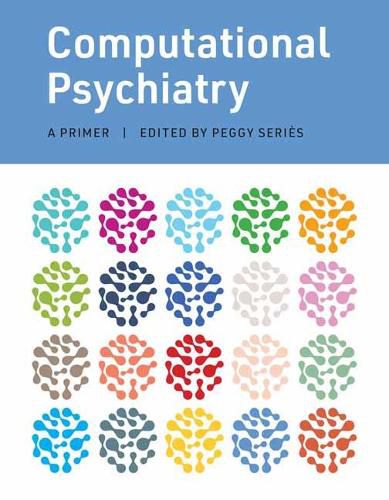Readings Newsletter
Become a Readings Member to make your shopping experience even easier.
Sign in or sign up for free!
You’re not far away from qualifying for FREE standard shipping within Australia
You’ve qualified for FREE standard shipping within Australia
The cart is loading…






The first introductory textbook in the emerging, fast-developing field of computational psychiatry
Computational psychiatry applies computational modeling and theoretical approaches to psychiatric questions, focusing on building mathematical models of neural or cognitive phenomena relevant to psychiatric diseases. It is a young and rapidly growing field, drawing on concepts from psychiatry, psychology, computer science, neuroscience, electrical and chemical engineering, mathematics, and physics. This book, accessible to nonspecialists, offers the first introductory textbook in computational psychiatry.
After more than 100 years of psychological theories, psychopharmacological research, and clinical experience, the challenges of understanding and treating mental illness remain. Computational psychiatry seeks to explain how psychiatric dysfunction may emerge mechanistically, and how it may be classified, predicted, and clinically addressed. It has the potential to bridge advances in neuroscience and clinical applications, connecting low-level biological features with high-level cognitive features. After a survey of computational psychiatry methods, the book covers biologically detailed models of working memory and decision making and computational models of cognitive control. It then describes the application of computational approaches to schizophrenia, depression, anxiety, addiction, and Tourette’s syndrome. Finally, the book briefly discusses additional disorders and offers guidelines for future research. Chapters also offer discussions of related issues, chapter summaries, and suggestions for further study. The book can be used as a textbook by students and as a reference for scientists and clinicians interested in applying computational models to diagnosis and treatment strategies.
$9.00 standard shipping within Australia
FREE standard shipping within Australia for orders over $100.00
Express & International shipping calculated at checkout
The first introductory textbook in the emerging, fast-developing field of computational psychiatry
Computational psychiatry applies computational modeling and theoretical approaches to psychiatric questions, focusing on building mathematical models of neural or cognitive phenomena relevant to psychiatric diseases. It is a young and rapidly growing field, drawing on concepts from psychiatry, psychology, computer science, neuroscience, electrical and chemical engineering, mathematics, and physics. This book, accessible to nonspecialists, offers the first introductory textbook in computational psychiatry.
After more than 100 years of psychological theories, psychopharmacological research, and clinical experience, the challenges of understanding and treating mental illness remain. Computational psychiatry seeks to explain how psychiatric dysfunction may emerge mechanistically, and how it may be classified, predicted, and clinically addressed. It has the potential to bridge advances in neuroscience and clinical applications, connecting low-level biological features with high-level cognitive features. After a survey of computational psychiatry methods, the book covers biologically detailed models of working memory and decision making and computational models of cognitive control. It then describes the application of computational approaches to schizophrenia, depression, anxiety, addiction, and Tourette’s syndrome. Finally, the book briefly discusses additional disorders and offers guidelines for future research. Chapters also offer discussions of related issues, chapter summaries, and suggestions for further study. The book can be used as a textbook by students and as a reference for scientists and clinicians interested in applying computational models to diagnosis and treatment strategies.